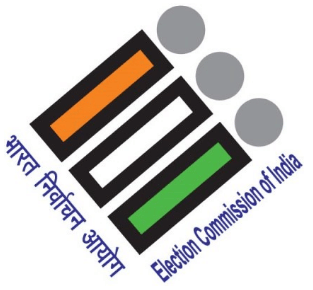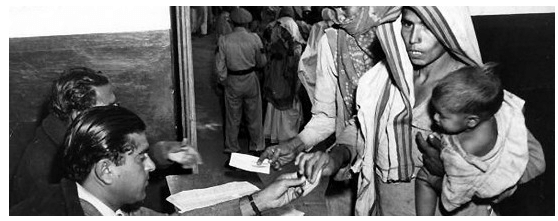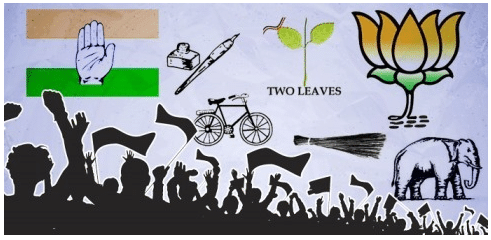Rise of Democracy in India | Post Independence History for UPSC Mains PDF Download
Introduction
Faced with such serious challenges, other leaders from different countries resisted democracy as a form of governance. According to the leaders of different countries who gained freedom from colonialism, their priority was national unity, which will not be sustained with democracy as it would bring differences and conflicts. But despite illiterate population, diversities and poor economic condition Indian leaders pursued adoption of democratic measures to consolidate India.
- Adoption of constitution on January 26, 1950 – Led to first democratically elected government
- Election commission of India was set up in Jan 1950 with constitutional provision to conduct free & fair elections
- India adopted universal adult franchise irrespective of any distinction of any kind with prescribed condition of age.

Election commission soon realized that it was an uphill task to conduct a free and fair election in a country of India’s size. No election on this scale had ever been conducted in the world before.
- Holding an election required delimitation or drawing the boundaries of electoral rolls
- Woman often registered themselves as wife or daughter of somebody rather registering themselves by their names
Given the unawareness & high level of illiteracy, election commission trained over 3 lakhs officers and polling staff to conduct the election –
- Candidates were to be identified by symbols, assigned to each major party
- Independent candidates painted on ballot papers in the box assigned to a particular candidate
- Ballot was kept secret

A remarkable feature was the wide participation of women: at least 40% of women eligible to vote did so. When elections results were declared, it was realized that nearly 46% of eligible voters had cast their vote. Thus, faith of the leadership in the people was fully justified.
The Congress System
Congress had emerged as the single largest party & formed government in all the states & at center. The fair and peaceful conduct of polls was an indication that the democratic system & institutions, a legacy of the national movement were beginning to take root. The successful conduct of the polls was one of the reasons why India and Nehru, came to be admired abroad, especially in the ex-colonial countries.
- In the first decade, congress acted both as the ruling party as well as the opposition.
- Congress adopted inclusive approach & accepted membership of all the strata of society & was an ideological coalition.
- It accommodated the revolutionary and pacifist, conservative & radical, extremist & moderate & right, left and all shades of the center.
- The coalitional nature of congress party tolerated & encouraged various factions and instead of being a weakness, internal factionalism became the strength of the congress.
- The system of factions functioned as balancing mechanism within the ruling party.
Emergence of Opposition Parties
In initial years, all opposition parties achieved only a token representation in Lok Sabha & State assemblies during the “congress system”, period. Yet these oppositions played a key role in maintaining the democratic character of the system. The opposition parties offered a sustained and principle criticism of the ruling parties and policies of the congress.
- In the beginning, there was high respect between congress & opposition leaders
- But the positive rapport between congress & opposition leaders gradually declined when these parties in intense competition of achieving power.
- As the ability of congress to accommodate all interests and all aspirants for political hour steadily declined, other political parties started gaining greater significance.

Socialist party
Foundation laid in 1934 as Congress Socialist Party, when some leaders within congress party have sought more radical & egalitarian congress.
- After independence, the congress party changed the rule regarding duel membership & barred CSP members with congress’s membership.
- This situation compelled CSP leaders to form separate Socialist Party in 1948.
- Socialists believed in the ideology of democratic socialism which distinguished them both from congress and communists.
- Socialist party leaders criticized congress for favouring capitalists and landlord and ignoring teaming masses like workers, peasants.
- Socialist party offered limited cooperation to the congress when the congress party in 1955 declared its goal to be the socialist pattern of society.
- In the contemporary times, the Samajwadi party, Rashtriya Janta Dal (RJD), Janta Dal (United), Janta Dal (Secular) traces their origins to the socialist party.
Bhartiya Jan Sangh (BJS)
- Formed in 1951 by SP Mukharjee & trace its roots with RSS & Hindu Mahasabha before independence.
- BJS emphasised the idea of one country, one culture and one notion and believed that the country could become modern, progressive and strong on the basis of Indian culture and traditions.
- BJS leaders were Shyama Prasad Mukharjee, Deen Dayal Upadhayaya, and Balraj Madhok.
- In the contemporary times, the Bhartiya Janta Party (BJP) traces its roots to BJS
The Communist Party of India
Taking inspiration from the Bolshevik revolution in Russia, there emerged lots of communist group advocating socialism is the solution to the problems affecting the notion in 1920’s.
- The communists worked mainly within the congress fold, but they had separated themselves from the congress when they supported British in WW2.
- Communist believed in violent uprising to gain control but after independence they abandoned violent means & participated in general elections and emerged as second largest opposition party.
- CPI spilt up in 1964 and the pro-china faction formed the CPI (Marxist).
- Now, the base of both has shrunk a lot and their presence concentrates in very few states of the country.
Swatantra Party
The swatantra party was formed in August 1959 after Nagpur resolution of the congress which called for land ceilings, takeover of food grain trade by the state, adoption of cooperative forming. They didn’t believe this resolution.
- Party believed lesser involvement of the government in economy & opposed development strategy of state intervention in economy, nationalization & Public sector.
- They opposed progressive tax regime & demanded dismantling of license Raj.
- It was critical of non-alignment policy & friendly relations of India with the Soviet Union and advocated closer ties with the USA.
- The industrialist and big landlords supported this party.
- This party has a very limited influence, lacked dedicated cadres, so it didn’t perform well.
|
25 videos|44 docs|21 tests
|
FAQs on Rise of Democracy in India - Post Independence History for UPSC Mains
| 1. What is the significance of the rise of democracy in India? |  |
| 2. How did democracy evolve in India? |  |
| 3. What are the key features of Indian democracy? |  |
| 4. How has democracy impacted Indian society? |  |
| 5. What are the challenges faced by democracy in India? |  |





















